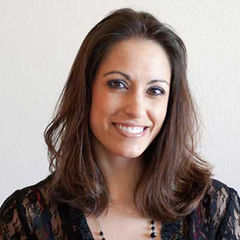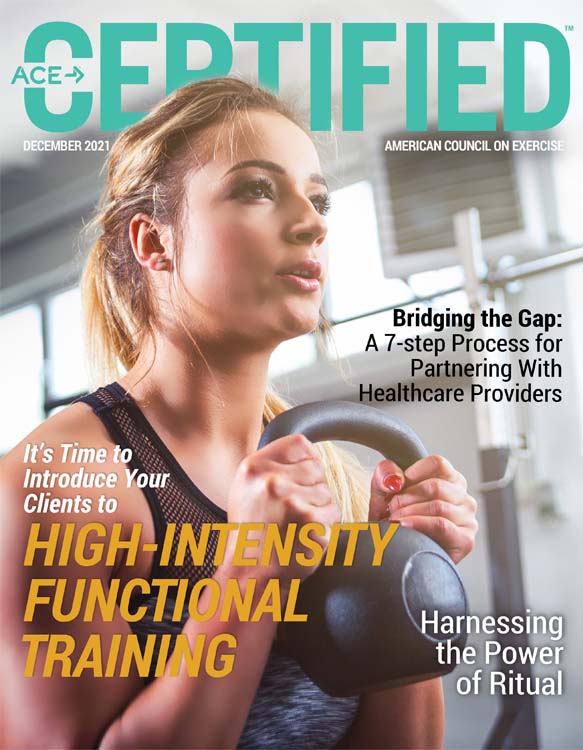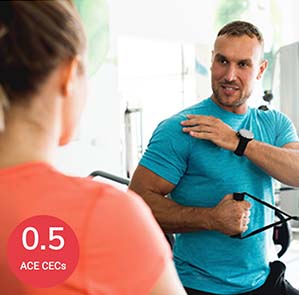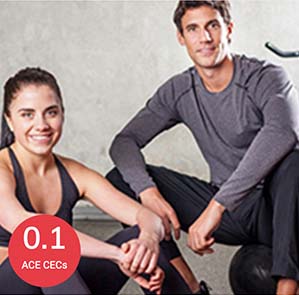
Being a health coach does not necessarily mean you have all the answers. In fact, there are many times you will question your knowledge, abilities, and general practices and processes. This is a good thing. It means you are constantly considering, evaluating and investigating best-practice approaches. The even better news: You’re not alone in questioning the hows, whats and whys of your work as a health coach.
As an instructor and practiced health coach, I’m commonly asked several questions when talking to students and newly certified professionals. To be honest, I still ask myself some of these same questions, as they offer me an intentional and reflective opportunity to remain engaged in my practice and the larger profession.
The goal of this article is twofold: First, to identify some of the most common questions we hear and/or ask as professional health coaches. And second, to provide insight from three other certified professionals into how to address these questions. In this case, a variety of perspectives is essential to providing thorough and actionable answers.
Common Questions Asked by Professionals
The questions were curated after interviewing three certified health coaches in the industry, all of whom have different educational backgrounds and varying levels of experience
Question 1: After earning my certification, what is my next step and in what types of settings can I work?
Chris Gagliardi, Scientific Education Content Manager for ACE, says he receives this question frequently from those studying for a certification exam and/or those who have successfully passed an exam. The answer is not a simple “do this and then that” response. It all depends on where a person wants to go and how they might envision using their certification to serve others in different settings. Becoming a certified health coach affords limitless opportunities to positively impact the lives of others, regardless of the particular setting or environment. Let’s address this question with some simple “first steps” to consider.
First, identify and set goals. If you pursued a certification as a health coach (or other health and exercise professional), you already considered how to apply your skills. Here is where you can decide, in a more specific format, what you want to accomplish in the next year, the next three years, and even the next five to 10.
Once you have an idea of your goal(s), start outlining your mission. This is where you state how you want to help those you serve and call attention to the “pain points” your possible clientele may wish to have solved. A solid mission statement should be able to address the client’s question of “What will I gain by working with you?”
Third, update that resume. Once it is polished, share it with others in your trusted circle and ask for fair and balanced feedback. Your resume is the tool you can use to get your foot in the door. It also showcases your skills and abilities. Make sure it allows you to put your best self forward.
The next step is to build experience in a way that aligns with your values (don’t compromise those as you move forward on your journey). There is currently a variety of settings and environments in which you can work as a certified health coach, including fitness centers, educational institutions, spa-like environments, clinical spaces such as hospitals, corporate settings and other entities such as non-profit or state/federal organizations. Start researching options in a wide range of settings and narrow down your choices based on where you feel your skills best align. You also have the option to start your own coaching services by establishing an LLC/sole proprietorship. If being in business for yourself is something that appeals to you, visit www.sba.gov for free resources and tools.
Question 2: How do I identify my target market?
This is a question I hear from every new professional I mentor. It’s a valid and necessary question. However, it can be difficult to specifically narrow down your focus. I guide newly certified professionals using the following questions:
- Who do you want to work with as a health coach? Be specific and clear.
- What is your target age group? Think in increments of 10 to 15 years.
- What is their living situation? For example, do they care for kids or older family members? Do they work from home? Are they divorced or newly married? Be as specific as possible.
- What are their hobbies? Where do they typically hang out?
- Are you interested in coaching women, men or other specific groups?
- Do you know your ideal clients’ objectives and needs? What are they?
- Does your expertise allow you to address those needs? If not, what do you need to do to build that expertise?
- What problem are you trying to solve? For example, do you want to help clients lose weight or reduce pain? Train for an event or keep up with their grandkids?
- What format is most appealing to you and your potential clients? Do you prefer face to face, online or a mix of the two?
The key here is to be as clear and specific as you possibly can. You may need to do some market research and find out what other professionals in your area are offering and how they are offering it. This will also help you identify possible competitors.
Question 3: What’s the best way to build my professional network and connect with other health coaches?
Another common question Gagliardi answers is related to networking and building connections. As health coaches, we are programmed to focus on the value of relationships, not only with those we serve but also with other healthcare professionals. The best way to build a network, explains Gagliardi, is to start laying one brick at a time. He also reminds individuals that networking requires an investment not only in terms of time, but also in energy and rapport building. One effective way to do this is to intentionally engage with other professionals and their work. Follow them on their social media channels and make meaningful comments—go beyond just liking a post.
Another idea is to reach out personally via email or a message option on a social media app such as LinkedIn. A simple email in which you share how much you value their work and what it means to your own practice can have a positive impact. One rule I like to follow is what I refer to as the “conference rule.” When I attend a conference, webinar or other presentation, I send an email to the presenter or expert thanking them for their time and contributions to the field. It’s astonishing how often you will receive a reply and an invitation to Zoom chat. It’s worth the time it takes.
ACE also offers several options for connecting with other health and exercise professionals, including the ACE Health Coach Network.
The connections you take time to build and continuously nurture can evolve into lasting friendships. Take the time to invest and remain patient as you cultivate your relationships with others.
Question 4: How did you become successful in this field and remain engaged with its evolving landscape?
Many new professionals wonder what success looks like and how other health coaches have experienced success. One certified health coach, Susan Howard, MS, NBC-HWC, AFPA-certified Wellness Coach Business Development advisor for obVus Solutions (the developer of minder), shares a beautiful and authentic response to those who approach her about her success in the field.
“There’s no one way to get there but for me, it’s all about keeping myself in a supportive environment—in my own mind, with others and my community,” explains Howard. “Building relationships with my community, with others and even with myself is key to long-term career health. I seek to see success in each step and celebrate the small wins and even those that may look like failures. This ability and resilience to have a growth mindset, be resourceful, ask for help when I need it and be confident in the talents that make me unique is a superpower that has guided me into a space of career satisfaction.”
Success ebbs and flows, and we never achieve it alone nor can it be celebrated in isolation. As certified health coaches, we have a unique network and community of support that elevates, empowers and encourages, all of which we do regularly for our clients. As coaches, we have an obligation to also coach each other.
Question 5: What forms do I need and what do I put in a coaching agreement?
Shifting the focus to the more technical and process-oriented aspects of the practice, Lee Jordan, ACE Health Coach, professor and national presenter, addresses the hows and whys of health coaching paperwork. Using forms is a common (and necessary) practice. Their proper use reduces liability and helps to protect clients’ interests and confidentiality. As a health coach, you will generally use forms including a lifestyle and health-history questionnaire, the PAR-Q+ and/or a readiness to change questionnaire. (Note: ACE Certified Professionals can access these forms at the Bonus Tools link at the top of this article.)
In addition, you need to ensure you have a solid coaching agreement in place. Jordan suggests that this form is a truly “must have” and prefers the word agreement over contract.
“The most fundamental principle of health coaching is that we are entering into a client-centered partnership/collaboration; the expert is the client,” explains Jordan. “Hence, the word agreement conveys this fundamental truth from the outset.”
A quality coaching agreement includes:
- The nature of the client–coach relationship
- The type of coaching (e.g., online, live in-person or telephonic) and frequency
- Procedures related to fees, payments, duration, cancelation, etc.
- Statement ensuring client confidentially and right to privacy
Beyond the “nuts and bolts” of the agreement Jordan offers this reminder: “Be intentional about your coaching agreement conversation,” he says. “First impressions, initial actions, are valuable and significantly influence how and at what pace a relationship develops. This is an opportunity to begin the expectation management process, helping level set client expectations, which will build trust. After all, expectations are the lens through which your client will view their journey.”
For a sample coaching agreement, visit this link. For samples of other forms, visit the My Business Tools section in your account on the ACE website.
The list of questions presented here are not exhaustive and, if you’re like me, your mind is constantly churning and wondering and imagining. Never lose that. Whether you are a newly certified health coach or as a veteran of the field, this is how we evolve as individuals and as a collective power. Together, we achieve more and so do our clients.

 by
by 





